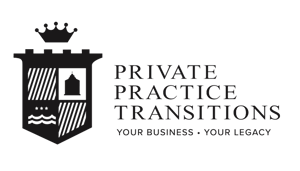When considering buying a business, it’s critical to know as much as possible about tangible and intangible assets. Intangible assets play a significant role in the overall value of a business, and understanding their significance is crucial when deciding to buy a business. Keep reading to learn what intangible assets are, why they matter, and what you need to consider when buying a business with intangible assets.
What Are Intangible Assets?
Intangible assets are non-physical assets that contribute to the overall value of a business. Unlike tangible assets like equipment or property, intangible assets are often harder to define, appraise, and quantify, making them an often overlooked factor in the buying process. Examples of intangible assets include:
Brand recognition: A company’s reputation and brand can greatly influence its customer base and demand for its products or services.
Patents and copyrights: A company’s intellectual property, such as patented processes or copyrighted materials, can provide a competitive advantage by preventing others from duplicating their offerings.
Customer relationships: A company’s goodwill and loyalty from its customers can significantly contribute to its revenue and growth.
Employee expertise and skills: The knowledge and abilities of a company’s workforce, particularly in specialized industries, can be extremely valuable to the company’s success.
Factors To Consider When Buying a Business With Intangible Assets
Assessing the Value of Intangible Assets
Before proceeding with the transaction, it’s important to accurately value the intangible assets of the business you’re interested in buying. You may want to enlist the help of professionals, such as accountants or valuation experts, to help you determine the true value of these assets.
Transferability of Intangible Assets
Not all intangible assets are easily transferable in a business transaction. For example, certain employee skills or client relationships may be tied to specific individuals who may not continue with the business after the sale. It’s essential to know which intangible assets will transfer with the business and which may be lost or diminished.
Due Diligence
Before buying a business, it’s crucial to conduct thorough due diligence on tangible and intangible assets. This may include reviewing financial statements, contracts, customer lists, intellectual property, and non-competition agreements. The due diligence process will help uncover risks and ensure you make a well-informed decision when buying the business with intangible assets.
Let Private Practice Transitions Help You Value a Business
Clearly, there’s a lot to know about buying a business with intangible assets, which can be difficult for those buying or selling a business. If you’re considering buying or selling a professional service business and need assistance valuing intangible assets, look no further than Private Practice Transitions and our Value My Business services. Our team of experts can help you accurately value your business and guide you through every step of the transaction.






